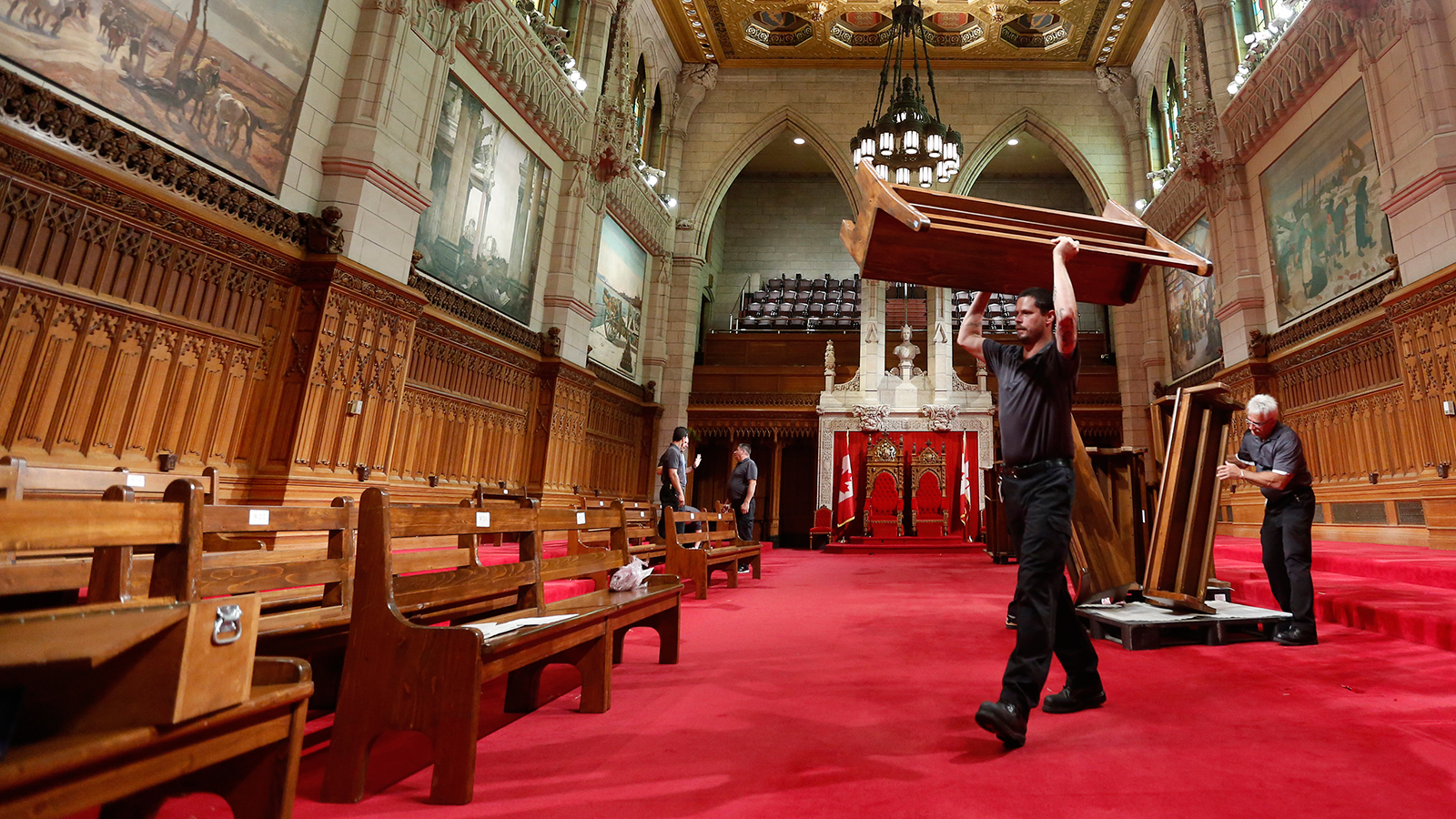Brazen populism can’t kill the Senate
Why the red chamber won’t die of simple neglect
Chris Wattie/Reuters
Share

If the Senate haters have their way, the chamber bathed in royal red will sit empty, indefinitely, come May 4, 2030. Here’s how it might play out: On that date, Michael L. MacDonald, a Nova Scotia businessman who once served as the former vice-president of the Conservative party, would celebrate his 75th birthday and retire. The Senate, its numbers having dwindled for some 17 years since Prime Minister Stephen Harper last appointed anyone to the upper chamber, would lose quorum. Down to the last 14 senators (one fewer than the Constitution says must be present to exercise the Senate’s powers), the remaining 12 Conservatives, a single Liberal and a single Independent would be powerless to do any business. They’d leave one of the most beautiful rooms in the land unoccupied.
There are a lot of variables in that scenario, of course—some current senators may die, wind up behind bars or resign for other reasons—but it would only come to pass if Harper refuses to appoint new senators ever again, and each prime minister who follows shows the same restraint. Harper, who has said he has no plans to appoint more senators, is no stranger to the art of intentional neglect. He may have named 59 senators between late 2008 and early 2013, but he also allowed 18 vacancies to pile up during his first two years in office. Even that didn’t set the empty-seats record. During Pierre Trudeau’s last year in office, he let the number rise to 21, meaning there was a time when 20 per cent of the Senate’s seats collected dust. Democracy didn’t verge on collapse.
But now, after layers of scandal have tarnished the unelected chamber’s reputation, a debate has gripped Ottawa over whether or not a prime minister is obliged to fill Senate vacancies, and to what extent neglecting the Senate might be a valid tactic to abolish it. This week in Saskatchewan, the country’s most popular premier, Brad Wall, said he openly favours abolition and that atrophy is “a long goodbye, but it is a goodbye.”
The issue has flared up amid rumours that some restless Tories are concerned about the growing number of vacancies. NDP Leader Tom Mulcair has been quick to weigh in, claiming there is no constitutional requirement forcing the Prime Minister’s hand. Toronto MP Craig Scott, the NDP’s democratic reform critic, explained the party’s position. The Constitution, he says, mandates only that the Governor General “shall from time to time . . . summon qualified persons to the Senate.” Scott claims the “time to time” provision “gives the Prime Minister a wide degree of latitude” to turn a blind eye to attrition.
If that argument seems as though it’s splitting hairs, Emmett Macfarlane, an assistant professor of political science at the University of Waterloo, says that’s because it amounts to “constitutional sabotage. These are smart people and, frankly, they should know better.” He says the Supreme Court’s ruling on Senate reform and abolition earlier this year concluded that “any fundamental change” to the upper house requires provincial consent. A Senate unable to function due to a shortage of warm bodies, he says, would constitute fundamental change. To wit: Senate rules dictate that each of the 16 standing committees requires a minimum of four senators. Eventually, the whole enterprise would collapse under the weight of so many overworked senators and reach a point where it could no longer properly conduct its business. “I suspect, by the time the Senate itself starts to complain that its capacities and function have been damaged, that we have hit unconstitutional waters,” says Macfarlane.
What complicates matters is that, apart from that definitive lack of quorum, there’s no consensus on when the Senate would reach a tipping point of parliamentary incapacitation. However, it’s almost certain that, long before then, a citizen, accompanied by an activist lawyer, would launch a court challenge to compel Harper or a future prime minister to act. “Conceivably, a case could be brought forward by . . . any citizen who’s able to get public-interest standing before the court,” says Macfarlane. “You have to identify a pressing constitutional concern. Standing has been liberalized to the extent that I think a court would allow the case to proceed.”
When pollsters ask Canadians about the Senate, two-thirds say the red chamber serves no “necessary and useful political function.” Against that backdrop, Senate opponents are hungry to see it disappear by any means necessary. But if that means abolition by neglect, the inevitable court challenge will spark a slow-motion crisis that pits brazen populism against the country’s founding principles. Whoever wins, there’s no guarantee anyone will be better off.